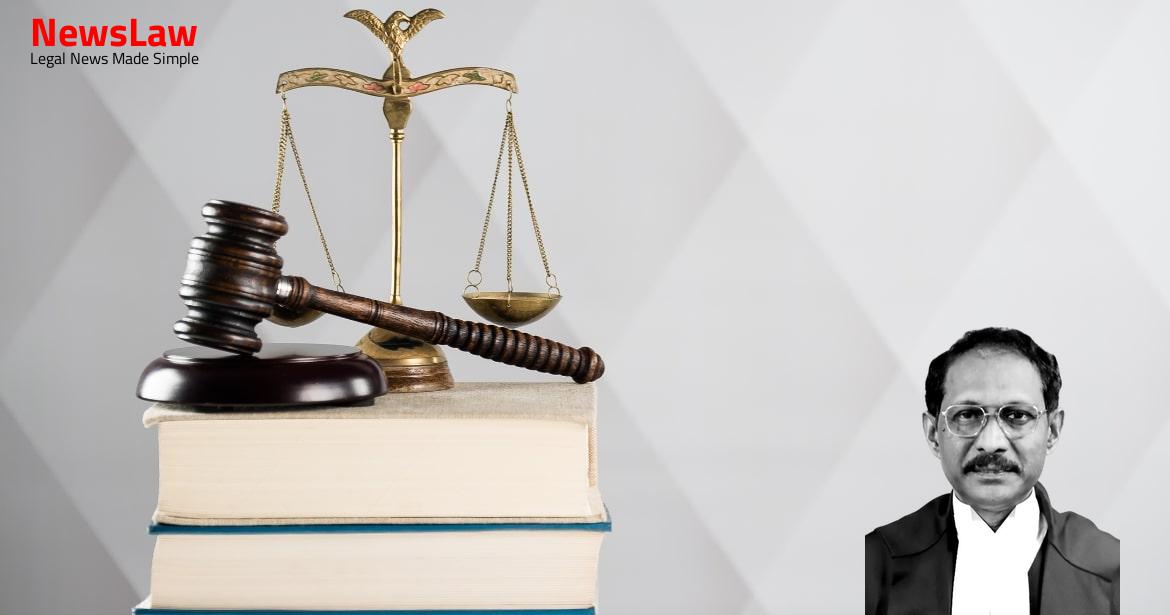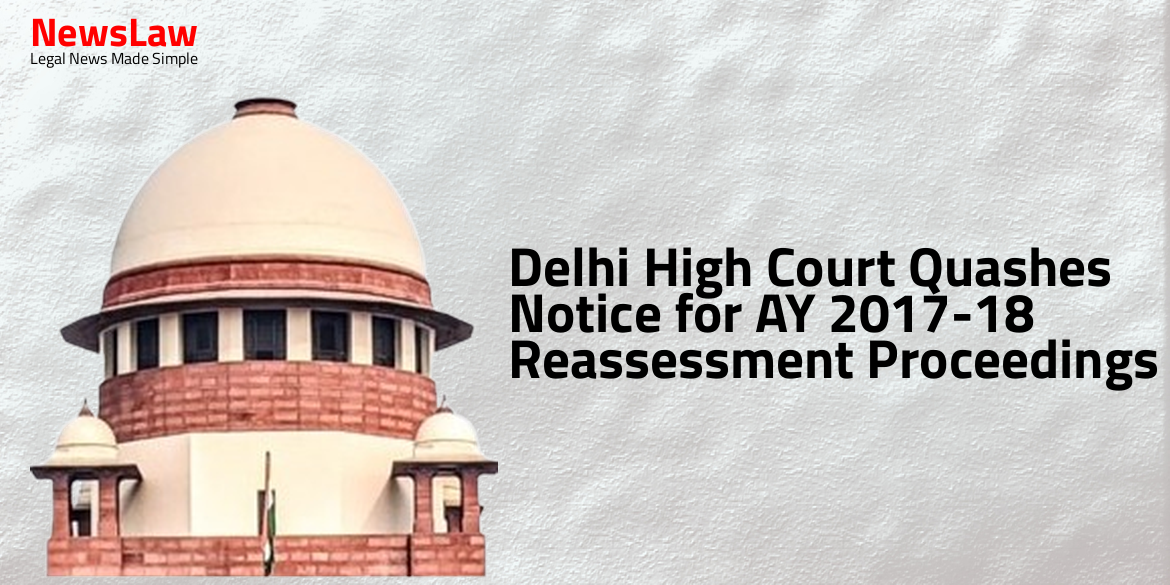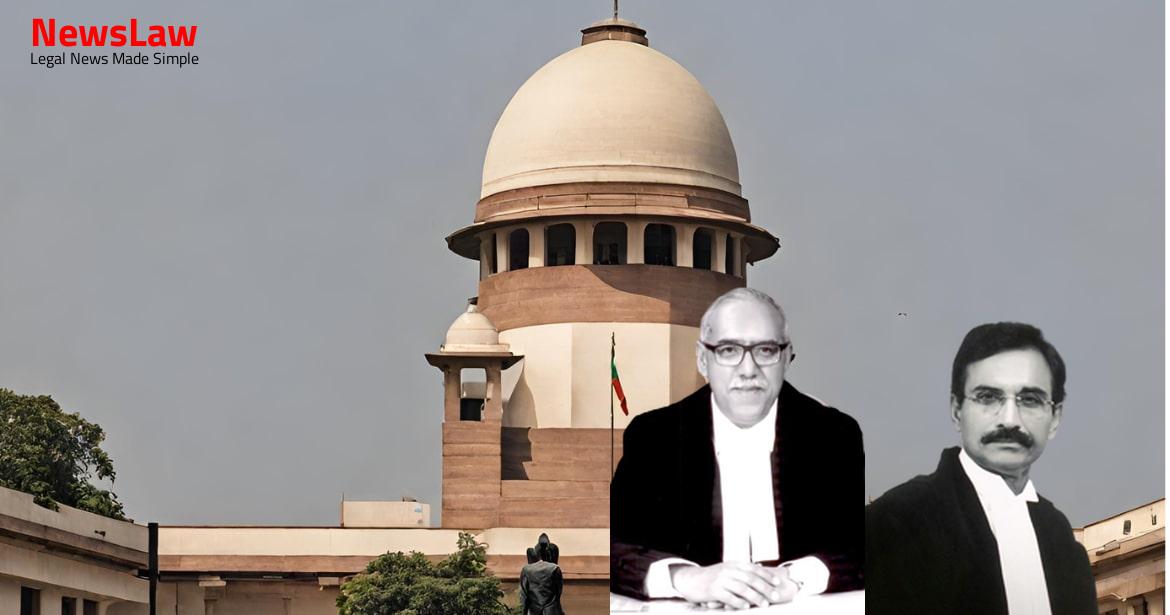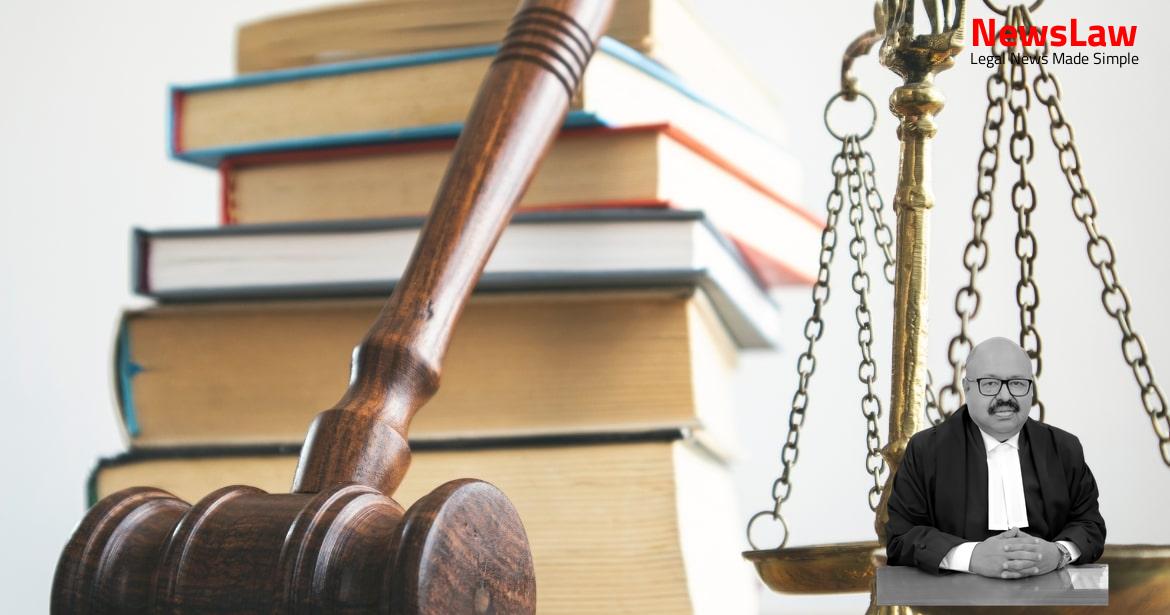Explore the intricate legal analysis involved in land dispute cases, particularly focusing on the High Court’s scrutiny of trial court and Appellate Court findings. The case delves into second appeal jurisdiction, the significance of substantial questions of law, and the complexities of specific relief in property disputes.
Facts
- The High Court reversed the concurrent findings of the trial court and the Appellate Court in the impugned judgment.
- The respondents-defendants were required to issue a notice to the appellant-plaintiff upon complying with the conditions in the agreement(s) to sell for payment of the sale consideration within 30 days.
- The Appellate Court affirmed the trial court’s findings of fact regarding the execution of the agreement to sell and receipt of earnest money.
- None of the respondents-defendants who signed the agreement entered the witness box, as found by the Appellate Court.
- The Single Judge of the High Court directed the plaintiff to pay the prevalent market value as sale consideration for execution of the sale deed pursuant to the agreement.
- The High Court dismissed the review applications filed by the appellant-plaintiff.
- A sale deed between the State of U.P. and Haryana could not be executed due to a dispute.
- Total amount payable as per the agreement to sell dated 29 October 1983 was Rs. 1,65,000, out of which Rs. 1,50,000 was received by the respondents by 23 August 1985.
- Appellant filed a suit for specific performance and permanent injunction against the respondents.
- Trial court decreed the suit on 3 January 2001.
- Appellant-plaintiff paid an additional amount of Rs. 1,00,000 at the time of execution of the agreement.
- Possession of the suit property was delivered to the appellant at the time of execution of the agreement(s) to sell.
- Appellant was in continuous possession of the suit property post agreement.
- At the time of agreement on 29 October 1983, an earnest amount of Rs. 50,000 was paid by the appellant.
- Another agreement to sell was executed between the parties on 23 August 1985.
Also Read: Presumption of Genuine Endorsements in Cheque Case
Arguments
- The learned Senior Counsel argued that no substantial question of law was required to be framed due to the Punjab Act.
- The appellant-plaintiff’s case based on the agreement(s) to sell remained unchallenged as the respondents-defendants did not enter the witness box.
- The High Court’s interference with the concurrent findings of the trial court and the Appellate Court was contested and deemed erroneous.
- The suit filed by the appellant-plaintiff on 17 October 1989 was considered premature based on the terms of the agreement(s) to sell.
- The sale deed was supposed to be registered only after obtaining the ITC Certificate and mutating the property in the name of the respondents-defendants.
- The appeals were argued to deserve allowance and the impugned judgments to be quashed and set aside.
- The suit property mutation suit by the respondents-defendants, decreed in December 2006, was highlighted in the argument.
- Reference to the judgment of the Court in the case of Kondiba Dagadu Kadam v. Savitribai Sopan Gujar was made.
- The defendants have admitted and acknowledged the plaintiff’s possession of the suit land and have witnessed the plaintiff making costly improvements on it.
- The defendants have allowed the plaintiff to use the land for various purposes like planting trees, raising constructions, and installing tubewells.
- Despite objections to the plaintiff’s expenditures, the defendants have received an amount of Rs.1,50,000 from the plaintiff.
- The defendants have threatened to alienate the suit land to third parties and take forcible possession, indicating greed and bad faith.
- The rising rates of the land have motivated the defendants to interfere with the plaintiff’s peaceful enjoyment of the property.
- The trial court’s direction allows for specific performance at the prevalent market rate if the plaintiff desires it.
- The suit’s validity is questioned in light of Section 14 of the Specific Relief Act, 1963, as argued by legal counsel.
Also Read: Medical Negligence and Compensation: A Landmark Decision
Analysis
- An appeal to the High Court is allowed from a decree passed in appeal by a subordinate court on specific grounds.
- Grounds for appeal include decisions contrary to law, custom, or usage with the force of law; failure to determine material legal issues; substantial errors or defects in procedural laws that may have influenced the case’s outcome.
- A question on the existence or validity of a custom or usage is considered a legal issue under this section.
- An appeal can also be made from an appellate decree passed ex parte, meaning in the absence of one party.
- The Second Appellate Court’s reasoning for decreeing the claim of the plaintiff for certain plot numbers was deemed incorrect and set aside.
- The trial court and the First Appellate Court had found that the plaintiffs failed to prove their ownership of the disputed land, leading to the dismissal of their case for declaration and possession.
- The High Court’s decision to grant a decree of declaration and possession to the plaintiffs for certain plots, based on the defendants not making a claim for those plots, was deemed illogical.
- The respondents-defendants denied the plaintiff’s possession of the property and claimed the right to alienate it, leading to the plaintiff filing a suit.
- The learned Single Judge erred in interfering with the concurrent factual findings of the trial court and the Appellate Court.
- The appellant-plaintiff was deemed justified in filing the suit due to the respondents-defendants’ attempts to alienate the property despite unresolved contractual obligations.
- The judgment of the High Court did not discuss the issue of perversity in relation to the concept of justice.
- It was highlighted that the jurisdiction in second appeal is not to interfere with factual findings unless there is a substantial error in law or procedure.
- The Second Appellate Court’s rationale was criticized for shifting the burden of proof from the plaintiffs, who failed to establish their case as the owners of the disputed property.
- The High Court’s second appeal jurisdiction under Section 41 of the Punjab Act was clarified to be limited to substantial errors in law or procedure, not factual disputes.
- The Appellate Court relied on the judgment in the case of Vidhyadhar v. Manikrao to draw an adverse inference due to the non-examination of any of the vendors.
- The High Court’s Single Judge stated that the appellant-plaintiff could seek specific performance of the contract only after the correction of the revenue record.
- The suit for correction of the revenue record was initiated by the respondents-defendants on June 4, 1986, and was decreed on December 22, 2006.
- In the recent judgment of Satyender and Others, three learned Judges emphasized the importance of a substantial question of law in second appeal cases.
- Second appeal does not involve re-examination or re-appreciation of settled questions of fact by the Trial Court and the Appellate Court.
- Shri Singh has not relied on the judgment of this Court in the case of Kulwant Kaur and Others
- The case of Kulwant Kaur and Others was not used as a basis for the argument presented by Shri Singh
- Respondents-defendants accepted the agreement(s) to sell and received Rs. 1,50,000 out of Rs. 1,65,000 for the suit property.
- They could not claim that the suit could not be filed before obtaining the ITC Certificate and correcting revenue records, while also asserting their entitlement to alienate the property.
- The High Court judge erred in overturning the trial court and Appellate Court’s findings based on correct evaluation of documentary and oral evidence.
Also Read: Remand of Writ Petition for Restoration and Decision on Merits
Decision
- The appeals are allowed.
- The judgments and decrees dated 3 January 2001 passed by the trial court in RBT 329/90/2000 and dated 8 February 2005 passed by the Appellate Court in Civil Appeal No 11 of 2001 are upheld.
- The judgment 3 March 2008 passed by the High Court in Regular Second Appeal Nos. 1206 and 1207 of 2005 and order dated 10 April 2008 passed by the High Court in R.A. No 19-C of 2008 in R.S.A. No. 1206 of 2005 and R.A. No 18-C of 2008 in R.S.A. No. 1207 of 2005 are quashed and set aside.
Case Title: M/S.SHIVALI ENTERPRISES ETC. Vs. SMT. GODAWARI (DECEASED) THR. LRS. (2022 INSC 952)
Case Number: C.A. No.-008904-008907 / 2010



